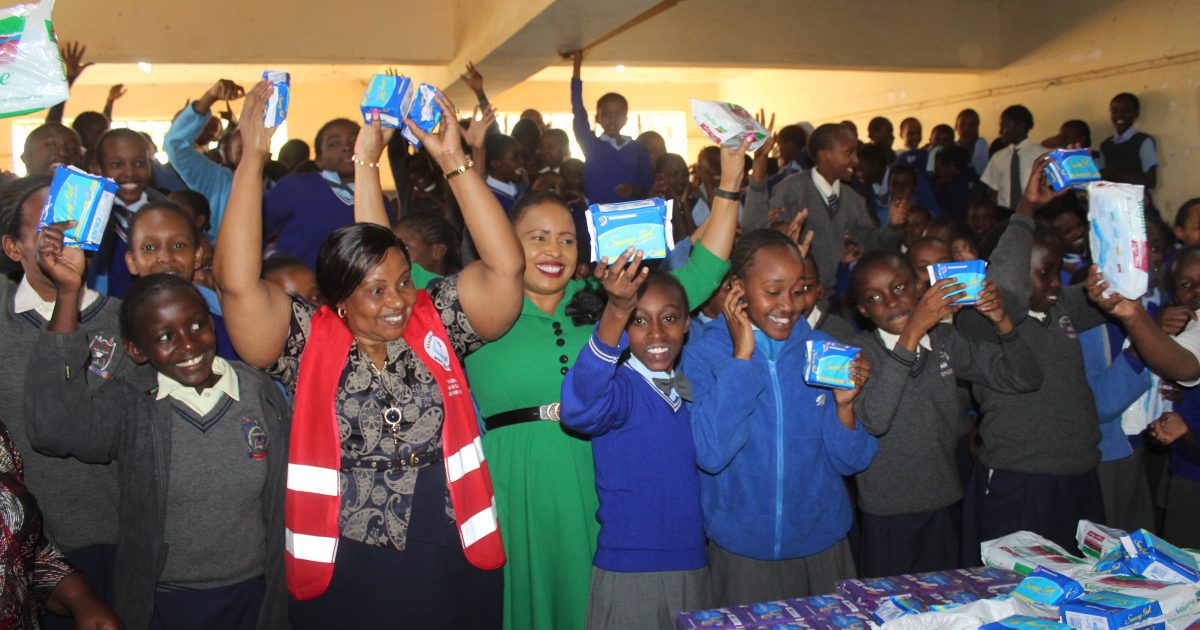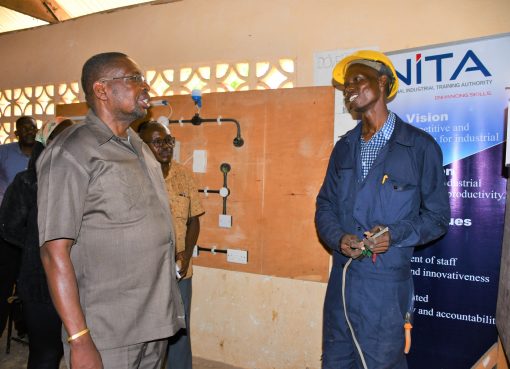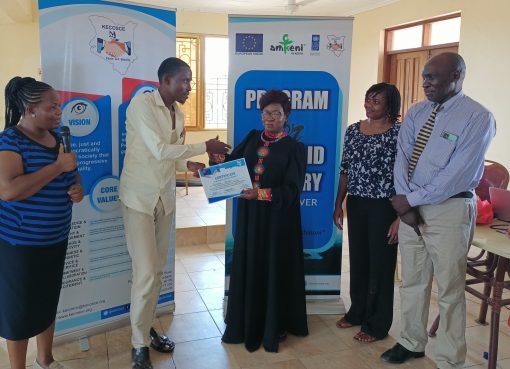Nominated Member of Nyeri County Assembly Agnes Wachira yesterday helped distribute free sanitary towels to 320 girls of Nyamachaki Primary School during celebrations to mark World Menstrual Hygiene Day.
During the event Ms Wachira who also doubles as Chair of Women Affairs at the Assembly cited biting poverty levels as the greatest challenge in accessing the crucial towels for girls living in the informal sector situated at the outskirts of Nyeri town.
The lawmaker who has begun the distribution of sanitary towels to school girls from low-income areas in 2022 also challenged the government to fast-track the process of availing sanitary towels to all school going girls across the country as a matter of urgency and to help address frequent absenteeism due to lack of the pads.
“Today (Monday) is World Menstrual Hygiene Day. I visited Nyamachaki Primary School which is based in the CBD of Nyeri town. We have targeted a group of 320 girls. Most of the children come from the catchment areas of ghettoes like Majengo,Kangemi and Witemere and other bordering slums. As a way of giving back to the society we have come to talk to the girls to donate pads to them as well as give them a health talk because you find out that most of the children are not even able to handle themselves during their cycle and therefore end up missing schools. We want the society to embrace them also try to understand that the poverty index is something that is affecting us and that’s why we are requesting the society and all the leaders to support the girl child, “she said.
Wachira further says apart from issuing out free sanitary towels to the vulnerable girls, she is using such events to demystify society’s view on women’s menstrual cycle as something not worth discussing.
The lawmaker said one of the biggest challenges in addressing menstrual health in the community is the stigma that has been attached to the topic making it almost a taboo for young girls to discuss the matter even with their own female guardians.
“These girls are very excited. The teachers have told us the girls miss classes and when that gets people who come not only to donate pads but also demonstrate to them how they are used they are very grateful to them because some of them are not even able to talk to their parents in an open way. So, when they get someone who is giving them these things, we are able to give them a breakthrough since they are able to learn,” she added.
On her part Mrs Mary Nzue who is the school’s headteacher lauded the gesture terming it a timely gesture.
Nzue cited lack of knowledge and poverty as the greatest impediment in addressing menstrual hygiene among school going girls.
She has also called for more well-wishers to come forward and support the government’s effort in supplying sanitary towels to girls noting that such an undertaking will greatly help address frequent absenteeism among female learners during their menstrual days.
“Lack of knowledge and supply (of sanitary towels) has been a challenge to this institution. Many of our girls come from catchment areas from remote Witemere surrounding areas where parents are not able to provide pads. Some of them have also not been able to teach them and educate concerning pads. They have been able to receive education concerning pads so have been able to teach them and educate them and we can see something is happening,” she said.
“It’s my wish and my prayer that the government and any well-wisher is able to stand with this institution in supplying sanitary towels for our girls because many of the parents are not able to meet this expenditure and come to school with problems, they come to us and sometimes we buy for them,” she disclosed.
The headteacher also cited the large population of her school that stands at 1,700 pupils as a reason for well-wishers to come to their aid in supporting the program of supplying free sanitary towels.
A 2016 UNESCO report estimates that one in 10 schoolgirls in sub-Saharan Africa skip lessons during their menstruation days while the Ministry of Education records that a girl who loses four days every 28 days due to lack of sanitary towels end up missing approximately two weeks of class time every term.
Overall, such a student misses at least 39 days or six learning weeks every academic calendar of nine months.
Studies also show that a schoolgirl loses 18 out of 108 learning weeks from Grade Six to Eight because of period poverty.
Cumulatively within four years of high school, a girl can lose 156 learning days, equivalent to almost 24 out of 144 weeks of learning.
Since 2017, the government has been setting aside sh.400 million annually to purchase and distribute the commodity in public schools.
Former President Uhuru Kenyatta won accolades initially after the Jubilee government declared a free sanitary towels initiative.
Established in 2014 by the German-based NGO WASH United, International Menstrual Hygiene Day aims to create a world where every woman and girl can manage her menstruation hygienically, safely, and in a dignified manner.
From its inception, this day has grown to include various organizations, governments, and individuals worldwide, all working together to advocate for menstrual hygiene and break taboos.
This year’s Menstrual Hygiene Day theme is a call for making menstruation a normal fact of life and where no one is held back because they menstruate by 2030.
By Samuel Maina





